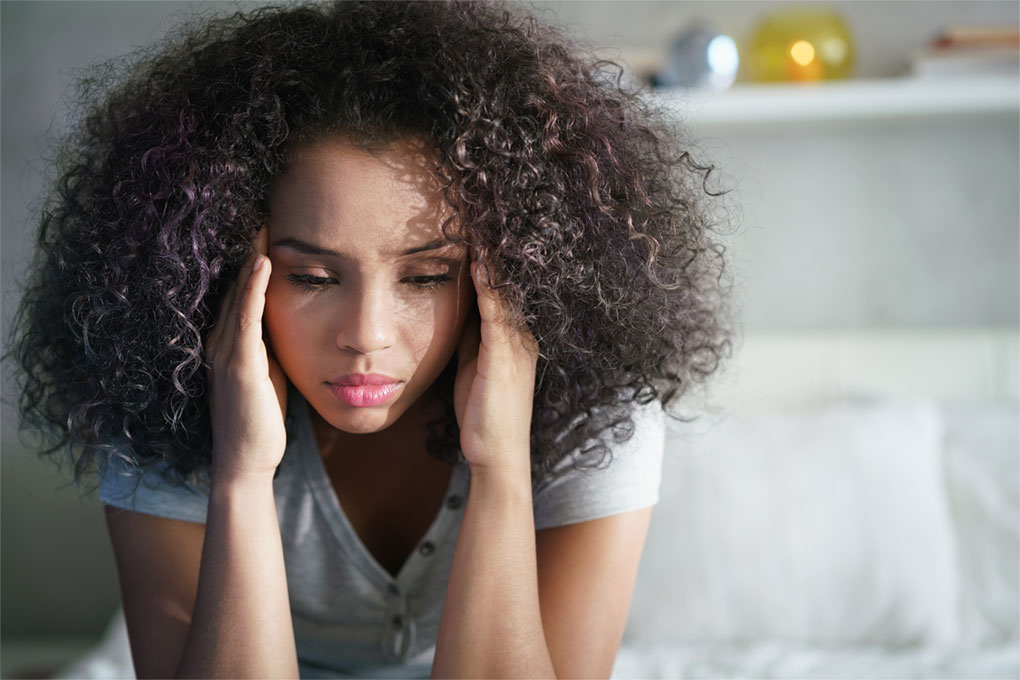Understanding What They Are and How to Cope with Them
If you are experiencing a mental health disorder, you’re not alone.
According to the National Alliance on Mental Illness (NAMI) , in 2020:
- 21% (52.9 million) U.S. adults experienced mental illness. 5.6% of them experience serious mental illness.
- 16.5% (7.7 million) U.S. youth aged 6-17 experienced mental illness.
- 6.7% (17 million) U.S. adults experienced both mental illness and a co-occurring substance use disorder.
Of those experiencing mental health disorders, only about half received treatment: 46.2% of adults, and 50.6% of youth. Studies also show that the average delay between the onset of mental illness symptoms and treatment is 11 years . In this first of two posts, we’ll discuss the most common mental health disorders, what they are, and how to cope with them. This post will cover:
- Anxiety disorders
- Obsessive-compulsive disorder (OCD)
- Clinical Depression
In next month’s post, we will cover:
- Bipolar disorder
- Schizophrenia
- Post-traumatic stress disorder (PTSD)
- Personality disorders
Let’s get started:
Anxiety Disorder
Everyone experiences anxiety. It’s that feeling of nervousness or worry before going on a first date, stepping into a haunted house, or taking a quiz you didn’t study for enough. In severe situations, anxiety can physically impact you, making you feel nauseous or have an upset stomach, diarrhea, or difficulty breathing. Many factors cause anxiety, including mental and physical conditions, and substance use. There are also several types of anxiety disorders, and you probably heard of most of them. Here are some of the most common types and their symptoms:
Generalized Anxiety Disorder
Frequent, numerous concerns. You may even spend more time feeling worried about things than not. Generalized anxiety disorder can affect your appetite, ability to focus, ability to sleep, and cause fatigue.
Separation Anxiety Disorder
Feeling extremely anxious any time you are separated from a caregiver (often a parent) or someone you consider a mental, emotional, spiritual, or physical protector.
Panic Disorder
Experiencing physical ailments associated with anxiety, such as panic attacks, dizziness, heart palpitations, and shortness of breath.
Phobic Disorders
Having an irrational fear of something, like spiders, heights, or enclosed spaces. For example, it’s one thing to not like spiders, but if the site of one causes your extreme distress, you may have arachnophobia.
Social Anxiety Disorder
Experiencing nervousness, fear, or the desire to avoid interactions with other people, whether they’re strangers, acquaintances or loved ones, you may have social anxiety disorder. Nearly one-eighth of U.S. adults experience social anxiety disorder at some point in their lives, and the pandemic didn’t help.
Stress Disorders
Stress from relationships, work, school, financial stress, emotional trauma, etc. can all lead to increased anxiety. In our previous post about how to naturally destress and improve your mental health, we discussed ways to cope with stress.
Anxiety Disorder Treatments
For many people, feelings of anxiety eventually go away. Here are a few things you can do at home to treat your anxiety:
- Talk to a friend, partner, or family member
- Practice deep breathing or meditate
- Take a relaxing bath
- Watching TV or something funny on YouTube
If your anxiety persists or gets worse, you may need to seek medical care. Call your physician if your anxiety is:
- Interfering with your personal or professional life
- Resulting in physical symptoms and/or are causing you pain
- If you’re feeling depressed or having suicidal thoughts
Obsessive-Compulsive Disorder (OCD)
People with OCD experience persistent or repeated obsessions or compulsions that interfere with their daily lives. These can include:
- Repeated thoughts or concerns that are excessive and just won’t go away
- Repeating actions, like the constant need to wash or clean something
- Repetitive thoughts
- Hoarding
- Inflexible morals, values, or ethics about sometimes menial things
- Perfectionism
Most people experiencing OCD also have another mental health condition, such as social anxiety or disassociation (a partial or complete interruption of someone’s conscious actions that they can’t easily recall or explain).
Obsessive-Compulsive Personality Disorder (OCPD)
OCD is also closely associated with OCPD. OCPD involves the need to be in control, have things set up perfectly, or have things organized in a way that sacrifices efficiency and flexibility. You should see a physician if your OCD or OCPD is impacting your quality of life, especially if you’re feeling depressed or have suicidal thoughts. The specific cause of OCD remains unknown, so there is no one-size-fits-all treatment plan for OCD. Any treatment you undergo will be aimed at relieving or minimizing your symptoms.
Clinical Depression
Everyone gets depressed sometimes. Like anxiety, it’s just a part of life. For many people, feelings of depression are just temporary, and after a few hours, days, or weeks, they return to their daily lives. However, if you’re still not feeling better after a couple of weeks, you may have clinical depression. Clinical depression isn’t simply grieving over a lost loved one or getting let go from your dream job. It’s an illness that makes even the easiest daily tasks seem insurmountable. In serious cases, clinical depression can even lead to suicidal thoughts, or an attempt to commit suicide. About 5.0% of people experience clinical depression, and it’s slightly more common in women and adults over 60. Common symptoms include:
- Feelings of sadness
- Loss of interest or pleasure in daily activities
- Loss of appetite
- Persistent boredom
- Weight fluctuation
- Inability to sleep or changes in sleep patterns
- Irritability
- Trouble focusing
- Social isolation
- Frequent crying spells
- Suicidal thoughts
- Thinking “the world would be a better place if I wasn’t in it”
What Causes Depression?
Sometimes depression can be traced back to a single cause. Other times, and a complex combination of biological, genetic, personality, and environmental factors. Many studies point to biochemical causes for depression. If your body isn’t in homeostasis, it can lead to abnormalities in your brain, which can leave you feeling “off.” These abnormalities can be triggered by a number of factors, including: Genetics: Depression can run in your family. Life events: Experiencing loss, a major change, or persistent stress can cause depression. Personality: If you have low self-esteem, worry a lot, or are usually pessimistic about life, you are more likely to experience depression. Diet: If you’re not getting enough key vitamins, your body will likely feel off-balance, potentially leading to depression. Medical conditions: A stroke, heart disease, or another life-alternating medical event can lead to depression. Substance use: Alcohol, drugs, and other substances can leave you feeling “down.” These can include medications you’re taking for other ailments. Changing your diet and getting exercise can help reduce symptoms of depression. However, if you’re clinically depressed, you should talk to a mental health professional about a treatment plan.
Mental Health Services
Everyone needs help sometimes. Don’t live with your mental illness for 11 years before seeking treatment. If you’re experiencing any of the types of mental health disorders we covered today, or any of the ones we’ll be covering next month, contact us. We can help. Continue Learning: Common Mental Health Disorders (Part 2)







